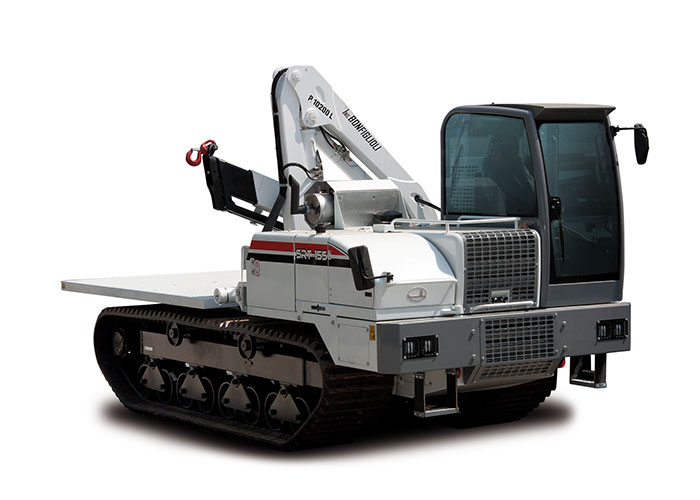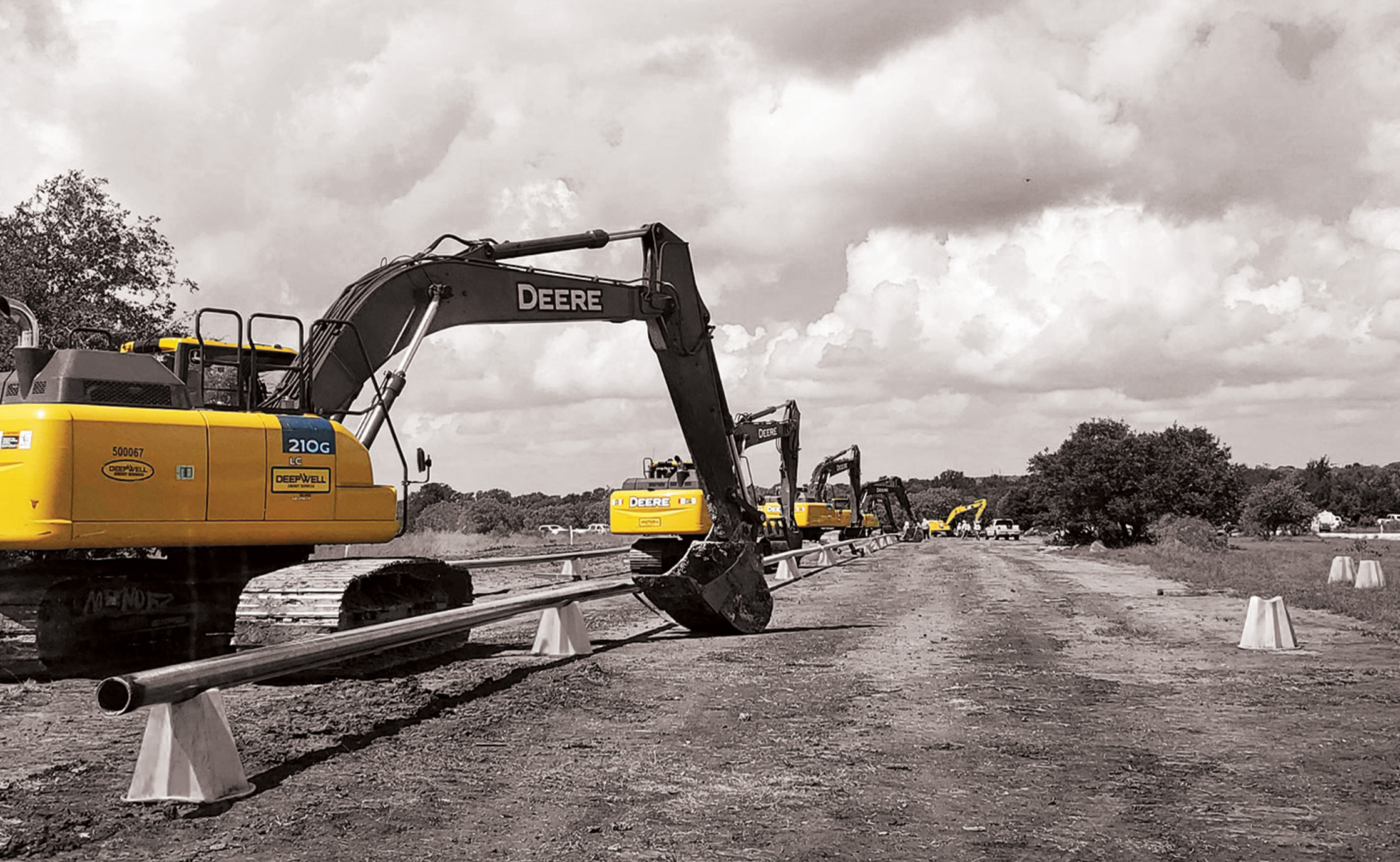Superior Rentals midland: benefits of regional expertise
A Comprehensive Guide to the Numerous Sorts Of Oil Field Equipment and Pipeline Equipment Available
The oil and gas market counts heavily on specialized devices for efficient extraction and transportation. Different types of machinery, from drilling rigs to storage space containers, play crucial functions in this complex procedure. Each tool offers distinctive functions that add to total operational success. Recognizing these components is vital for any person associated with the sector. As the market advances, so also do the innovations that support it. What advancements are on the perspective?

Drilling Rigs: The Foundation of Oil Exploration
Drilling rigs function as the essential machinery in the domain of oil exploration, allowing companies to gain access to hydrocarbon gets hidden deep under the Planet's surface. These rigs come in numerous types, including land rigs, offshore rigs, and mobile devices, each made to run in particular atmospheres. Furnished with advanced innovation, drilling rigs can penetrate geological formations with precision, making certain effective resource extraction. The structural stability and functional capacities of these rigs are important, as they need to withstand extreme problems and significant stress. In addition, the option of a drilling gear influences the total project cost and timeline, making it a crucial consideration for oil business seeking to enhance their expedition efforts and make the most of efficiency in their operations.
Pumps: Essential for Liquid Activity
In the oil removal procedure, the duty of pumps is substantial, promoting the activity of liquids throughout different stages of production. Pumps are essential for transferring petroleum, water, and other fluids from below ground tanks to the surface and after that through pipes to refineries. They can be found in different types, including centrifugal, favorable variation, and completely submersible pumps, each serving particular functions based on the fluid features and functional needs. Centrifugal pumps are commonly used for their efficiency in high-flow applications, while favorable variation pumps master dealing with viscous liquids. The option of pump impacts total effectiveness, functional security, and upkeep expenses. Proper choice and maintenance of pumps are vital for maximizing production and minimizing downtime in oil area operations.
Valves: Managing Circulation and Pressure

Valves play a vital role in managing the circulation and stress of fluids within oil fields and pipes. Numerous kinds of shutoffs offer unique applications, each created to fulfill particular functions essential for reliable procedure - Superior Oilfield pipeline equipment rentals. Comprehending the characteristics and uses of these valves is crucial for enhancing system efficiency and safety and security
Kinds of Valves
Important components in oil field operations, valves play an essential role in regulating the flow and pressure of fluids within pipelines and tools. Different types of valves are utilized to satisfy the varied requirements of oil and gas manufacturing. Typical types include entrance valves, which offer a straight-line flow and minimal pressure drop; world shutoffs, known for their throttling capabilities; and ball valves, recognized for their quick on/off control. Additionally, check valves prevent heartburn, while butterfly shutoffs supply a light-weight option for managing circulation. Each valve type is designed with specific materials and arrangements to hold up against the rough problems usually located in oil areas, making sure dependability and effectiveness in operations. Understanding these kinds is important for efficient system management.
Valve Applications and Features
While different types of valves offer distinct purposes, their main applications revolve around regulating flow and stress within oil and gas systems. Valves such as gate, globe, and sphere valves control fluid activity, making certain peak efficiency and safety. Gateway shutoffs are commonly utilized for on/off control, providing marginal flow resistance. World shutoffs, on the other hand, deal accurate flow guideline, making them suitable for throttling applications. Round valves are preferred for their fast operation and limited sealing capacities. In enhancement, pressure safety valve are critical for stopping system overpressure, securing equipment stability. On the whole, the appropriate choice and application of valves boost operational effectiveness, making certain the dependable transportation of oil and gas via pipelines and processing facilities.
Compressors: Enhancing Gas Transportation
Compressors play a vital role in the effective transportation of gas, making certain that it moves smoothly via pipelines over fars away. These devices boost the stress of natural gas, permitting it to get rid of rubbing and elevation modifications within the pipeline system. Furthermore, compressors promote the balancing of supply and demand, accommodating fluctuations in intake and manufacturing rates. Different kinds of compressors are employed in the sector, including centrifugal, reciprocating, and rotary screw compressors, each offering unique check over here benefits based on the functional demands. Normal maintenance of these compressors is important to maximize efficiency and lessen downtime, eventually adding to a trusted gas transport network. Their important feature underscores the significance of compressors in the overall oil and gas infrastructure.
Storage Tanks: Safe and Reliable Liquid Administration
Effective transport of all-natural gas counts on numerous support group, one of which is the correct monitoring of storage tanks. These containers play a crucial duty in securely containing liquids, making sure that operational efficiency is kept while lessening environmental risks. Constructed from resilient materials, they are designed to withstand high stress and destructive aspects. Correctly sized and strategically situated, tank help with the smooth circulation of gas and other liquids, avoiding traffic jams in supply chains. Routine upkeep and surveillance are crucial to detect leaks or structural issues, advertising safety and conformity with regulatory requirements. Ultimately, the effective administration of storage tanks is critical for the general honesty and reliability of the oil and gas sector's fluid handling systems.
Pipeline Equipments: Facilities for Transportation
Pipeline systems work as the foundation of the oil and gas industry, assisting in the efficient transportation of hydrocarbons over huge distances. These systems include different parts, including pipes, shutoffs, pumps, and compressors, all meticulously created to assure smooth flow. The materials utilized in pipeline building and construction, frequently steel or high-density polyethylene, are chosen for longevity and resistance to corrosion. Pipeline networks can cover throughout land and water, attaching production websites to refineries and warehouse. In addition, advanced technology enables real-time tracking of flow rates and pressure levels, improving functional efficiency. The calculated positioning of these pipes minimizes environmental effect while making the most of resource availability, therefore playing a vital function in conference energy demands worldwide.
Security Equipment: Ensuring Employee and Environmental Management
The procedure of pipeline systems, while essential for energy transport, likewise offers considerable safety obstacles for workers and the atmosphere. Security tools plays a considerable function in minimizing these threats. Personal protective tools (PPE) such as helmets, gloves, and non-slip footwear safeguards employees from physical threats. In addition, gas detection systems monitor for leakages, making sure that damaging substances do not pose a hazard to employees or the bordering environment. Emergency situation closure systems are imperative for promptly stopping procedures throughout a crisis, avoiding possible calamities. Spill containment materials, including absorbents and obstacles, are basic for minimizing ecological effect. Overall, spending in all-encompassing safety and security equipment is essential for preserving functional integrity and securing both workers and the atmosphere in the oil and gas market.

Frequently Asked Questions
Just how Do I Pick the Right Oil Field Equipment for My Task?
Picking the appropriate oil area tools entails reviewing job specs, budget plan restrictions, and operational requirements. Take into consideration variables such as tools dependability, compatibility browse around these guys with existing systems, and the distributor's reputation to guarantee peak performance and safety.
What Are the Maintenance Requirements for Oil Field Equipment?
Upkeep needs for oil area equipment consist of routine examinations, lubrication, and prompt repairs. Operators should likewise stick to supplier guidelines, monitor efficiency metrics, and assurance compliance with safety and security regulations to enhance long life and effectiveness.

Just How Can I Ensure Compliance With Environmental Laws?
To assure conformity with environmental guidelines, firms must conduct regular audits, execute finest methods, purchase training, preserve appropriate documentation, and stay updated on legislation (Superior Rentals midland). Collaboration with environmental agencies can also boost adherence to laws
What Is the Ordinary Life-span of Pipeline Equipment?
The ordinary life expectancy of pipeline devices normally ranges from 20 to 50 years, depending upon variables such as worldly quality, environmental conditions, and upkeep techniques. Routine evaluations can significantly affect durability and functional efficiency.
How Do I Securely Transfer Oil Field Equipment to Remote Locations?
Transferring oil area devices to remote locations calls for cautious planning, including path evaluation, securing licenses, utilizing appropriate lorries, and making sure security procedures are adhered to. Correct backhoe loader price training and communication among staffs are important for successful transport.